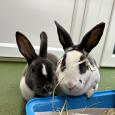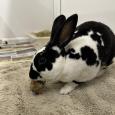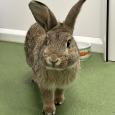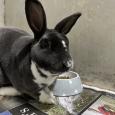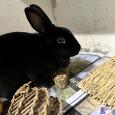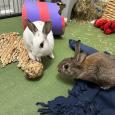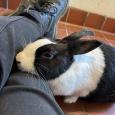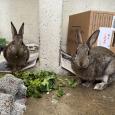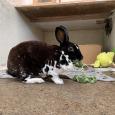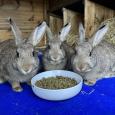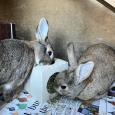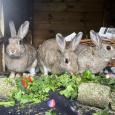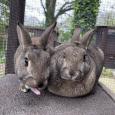- Home
- About
- 24 hour Emergency Wardens
- Animal Welfare
- Animal friendly hotels
- Awards & Recognition
- Corporate and group days
- Dog Fouling
- Dog Friendly Pubs
- Dogs Barking
- GSPCA Committee
- GSPCA Membership
- GSPCA Opening & Visiting Times
- Gert the GSPCA Duck - Fun for kids
- Guernsey Animal Law
- Guernsey Dog Tax Law
- Our Team
- Privacy Policy and Cookies Policy
- Restrictions on Beaches in Guernsey
- St Andrews Floral Group & Conservation Work
- Stray Cockerels & Hens
- Surveys
- Terms & Conditions
- Transporting animals in and out of Guernsey
- Vacancies
- Volunteers
- Services
- Adoption costs at the GSPCA
- Birthday or Special Guided Tours at the GSPCA
- Boarding Facilities
- Cat Adoption
- Choosing a Puppy
- Comments & Feedback
- Dog Adoption
- Dog Behaviour
- Dog Training
- Education and Schools
- Fostering Scheme
- Lost & Found Advice
- Microchipping only £4.99 & advice
- Pet Bereavement Advice Page
- Pet Cremation Services
- Pet supplies and products on sale
- Room hire at the GSPCA
- Training & Courses
- Vote for a staff member or volunteer
- Animals
- Gallery
- Support Us
- Shop
- Blog
- Links
- Contact
The right pet for you?
Rabbits are difficult to look after. They need lots of space, and large homes that can be expensive to create. Before getting any pet, think very hard about whether you can provide everything it needs.
What do rabbits need?
- Companionship - all rabbits needs company. mainly with other rabbits but with a lot of human interaction they can live alone. The widespread practice of keeping rabbits and guinea pigs together is not recommended.
- A mixed daily diet consisting of rabbit pellets and vegetables with the occasional fruit treat.
- A constant supply of a good quantity of hay to help maintain their teeth which are constantly growing!
- A constant supply of fresh, clean drinking water.
- If kept outside, a large weatherproof home with a big area/run that is out of direct sunlight and strong winds. Rabbits need to be able to hop 3 times in a row and sit up on their hind legs with ease. Move to an indoor area or porch in cold weather. Many homes sold in pet shops are too small.
- If kept inside, a large area that can either be a rabbit only safe zone e.g. pen or room. Rabbits need to be able to hop 3 times in a row and sit up on their hind legs with ease. Hazardous items must be removed or covered, for example electrical wires.
- A separate covered sleeping area for each animal.
- A clean layer of bedding, for example, blankets or paper on the floor with plenty of hay or straw in the bed area. Wood shavings and sawdust is not recommended as it can cause respiratory problems.
- Daily exercise in a large, safe area.
- Rabbits burrow, so ensure the enclosure is escape-proof and safe from predators. Ensuring nothing can dig in or out by adding wire netting underneath hutches and runs.
- Their homes need to be cleaned every day and bedding changed 2-3 times a week.
- Rabbits need lots of toys to stay entertained. Wooden toys can help to wear down long teeth. Items that can be stuffed with hay or treats can encourage foraging and provide fun ways to eat.
- To be brushed very often if they have a long coat.
- To be neutered at an early age. Ask your vet.
- Annual injections to prevent serious diseases.
- To be taken to a vet if they are ill or injured.
- To be looked after when you are on holiday.
Life span
Rabbits live on average between eight to twelve years.
Behaviour
Rabbits still retain much of their natural behaviour, which makes them unsuited to life in captivity. In the wild, rabbits live in large social groups, and it is unkind to keep just one. Male and female rabbits can be kept together as long as they have been neutered. Females and males from the same litter can also be kept together, but will have fewer hormonal and medical problems if they are neutered. They are the most active during dawn and dusk so need to have access to lots of space to run around and have plenty of items to keep them entertained.
Handling
Most rabbits do not like to be held and should only be held if necessary. Approach the rabbit from the front or side so they are aware of your presence. Gently place one, or both hands if needed, over the waist of the rabbit and lift towards your body immediately. Once near your body place one around the hindquarters so they are supported, whilst using the other arm to keep them secure. The rabbit should be resting against your body with its head towards your shoulder. Never pick up a rabbit by its ears or the scruff of its neck. Put a rabbit down slowly, hind legs first, on a non-slip surface.
Breeding
The GSPCA strongly advises that you do not breed rabbits. Keep the sexes apart if un-neutered to prevent unwanted young. Neutering is a straightforward operation that can be arranged with a vet. A female rabbit can have several litters a year, with as many as eight babies in each litter. It has also been proven that female rabbits are more likely to develop cervical cancers if left un-nneutered.
Health
All rabbits should be vaccinated yearly against Viral Hemorrhaging Disease 1 + 2 and Myxomatosis. All 3 of these diseases are prevalent on Guernsey. Your vet can advise.
Rabbits should be checked regularly for overgrown claws and teeth - these can be trimmed by a vet.
Young rabbits may be affected by a highly infectious disease called coccidiosis. Symptoms include a yellow look, diarrhoea, dullness and loss of appetite. Keep the rabbit isolated and seek veterinary advice straight away.
All rabbits may suffer from the potentially fatal disease flystrike, caused by flies laying eggs in soiled fur. Make sure the rabbits' home is cleaned every day, the bedding changed regularly and the rabbit has a good quality high fibre diet. Groom them every day, checking their fur for dirt, especially under the tail.
Rabbits may suffer from parasites. Treatment is available from your vet.
If a rabbit is sneezing and has a discharge from its nose, it may have snuffles. This is highly infectious and could lead to pneumonia. Keep the rabbit isolated and seek veterinary advice straight away.

